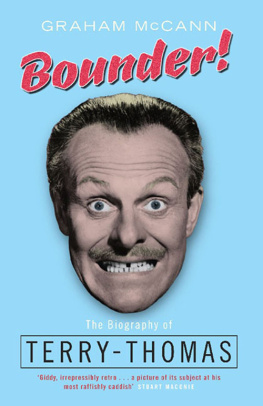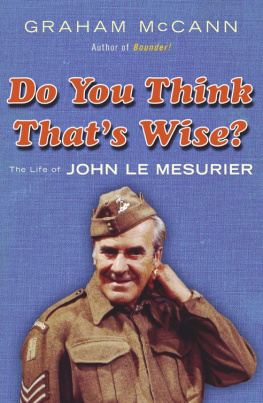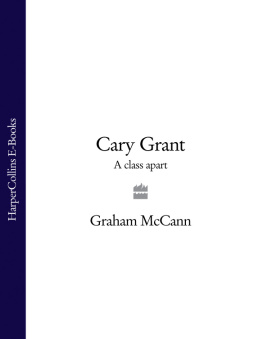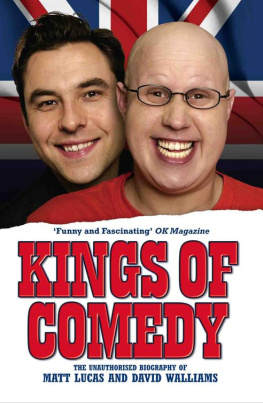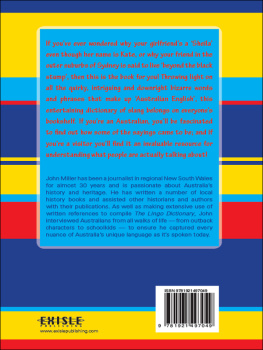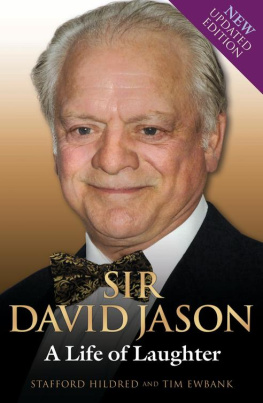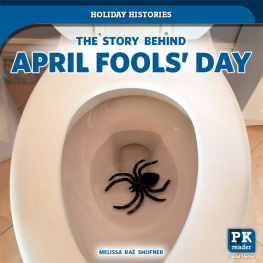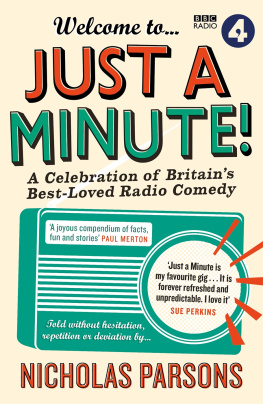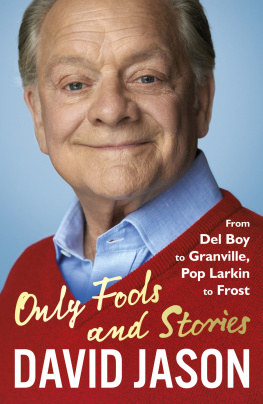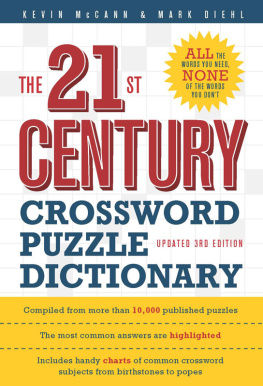Also by Graham McCann
Cary Grant: A Class Apart
Morecambe & Wise
Dads Army: The Story of a Classic Television Show
Frankie Howerd: Stand-Up Comic
Bounder! The Biography of Terry Thomas
Spike & Co.

First published in Great Britain in 2011 by Canongate Books Ltd, 14 High Street, Edinburgh EHI ITE
This digital edition first published by Canongate in 2011
Copyright Graham McCann, 2011
The moral right of the author has been asserted
www.canongate.tv
British Library Cataloguing-in-Publication Data
A catalogue record for this book is available on request from the British Library
ISBN 978 0 85786 054 5
eISBN 978 0 85786 129 0
Join the discussion :

#onlyfools
In memory of John Sullivan
PROLOGUE
Ever tried.
Ever failed.
No matter.
Try again.
Fail again.
Fail better.
DEL BOY: All the things that weve ever got out of life have come from my intelligence and my foresight.
RODNEY: Well, Im glad somebodys owned up!
The yellow van. The little man with the flat cap and gift of the gab. The taller, younger man with the permanently puzzled expression. The deals, the dreams, the scams and the calamities. The grand chandelier crashing to the floor. The gap where the bar flap should have been. The repeated affirmation that This time next year, well be millionaires! These are just a few of the things that come to mind when we think of the great British sitcom Only Fools and Horses. Surely only a twonk, a plonker, a wally or a dipstick would fail to rub their hands together, when thinking of this show, and exclaim cushty, lovely jubbly or perhaps even joie de vivre!
Only Fools and Horses is one of those sitcoms whose appeal transcends mere cult comedy fandom and engages with all of those who appreciate good acting, good writing and good television. Many sitcoms simply arrive, amuse and then fade away, providing us with nothing more than a pleasant but evanescent distraction. The special few, however, creep deep into our consciousness, capture our imagination, engage our emotions and never, ever, let us forget them. Only Fools and Horses, like Hancocks Half-Hour, Steptoe and Son, Dads Army, Fawlty Towers and a few others, has earned its place in such a pantheon.
Only Fools and Horses was the real deal. All of us knew of characters like Del Boy and Rodney Trotter, and most of us also knew of one or two people like Grandad and Uncle Albert, and Trigger, Boycie and Marlene. The life that they lived in and around that high-rise council flat at Nelson Mandela House in Peckham seemed authentic as well as funny. We watched the show not to escape from reality but rather to be entertained by it. As with all of the finest British sitcoms, it was a case of the British laughing at certain defining characteristics of the British.
Only Fools made us laugh at our amateurishness (the Trotters are self-unemployed salesmen who try to flog a strange range of faulty goods), our parochialism (most things strike them as exotic whenever they venture a mile or two outside of Peckham), our dogged nostalgia (Dels for his mother, Grandads for his youth, Uncle Alberts for the war and Rodneys for the promise engendered by his precious two GCEs) and our adamantine and ineluctable preoccupation with capital and class (one way or another, with unshakeable belief in the principle of he who dares, wins, Del is determined to drag his family up the social ladder). It also tapped into that inexhaustible well of contrariness mixing idealism with cynicism, producing bubbles of pretension that are then rudely pierced and popped just as soon as they appear on the surface that has driven so many British partnerships from Falstaff and Prince Hal to Lennon and McCartney and beyond (Ive got to admit its getting better/... It couldnt ). With one man gazing up hopefully at the stars and the other one glancing down anxiously at the gutter, Britains traditional comicdrama dynamic was re-enacted all over again. Were fifteen minutes from the West End and fifteen minutes from London, declares Rodney brightly from within the confines of their tower block council flat. Yes, comes the sardonic reply, and fifteen minutes from the ground.
The success of the show was, and continues to be, extra-ordinary. It attracted huge audiences during its 22-year run, making it the most-watched British show of two consecutive decades, eventually reaching a peak at 24.3 million still a record for an episode of a UK sitcom. It has been sold to many countries throughout the world (including Australia, Belgium, Bosnia, Croatia, Cyprus, Greece, Republic of Ireland, Israel, Malta, Montenegro, New Zealand, Pakistan, Serbia, Slovenia, South Africa and Spain) and it continues to inspire spin-off shows and frequent weeks and weekends of repeats on various satellite channels.
What is, if anything, even more extraordinary is the enduring affection that the programme still commands. A remarkable number of people remain eager to watch the old episodes, discuss them, savour them and cherish them. A whole new generation is now discovering them and delighting in them. An older generation is finding new reasons to re-visit and re-view them. Even in a culture that is now, at its broadest and most prosaic, so robotically and neurotically restless and
The sadly premature death of the shows gifted creator, John Sullivan, on 23 April 2011, dashed such hopes definitively, but also underlined how keenly so many people still care about the greatest of his numerous achievements as a writer. Included among the countless warmly respectful obituaries and encomia about the man himself were many words of praise for Only Fools and Horses in particular. The critic, writer and broadcaster David Quantick, for example, remarked that anyone seeking to write comedy who is even only slightly aware of sitcoms lineage would be well advised to study the show and see how it is done by a master of popular, populist, intelligent and witty comedy; the BBCs Creative Director, Alan Yentob, praised the beauty of the programmes scripts and predicted that the Trotter family would provide enjoyment, tears and laughter for generations to come; and another of Sullivans fellow writers, Maurice Gran, said of Only Fools that the richness of characterisation, and indeed the number of vivid characters, leaves most other sitcoms looking sparse and underpopulated.
A substantial celebration of this remarkable show, therefore, is something that it richly deserves, but, nonetheless, it needs to be done in the right spirit. Great sitcoms, in this day and age, remain available at the flick of a switch. There is thus no need to retrieve them via an elaborate and painstaking excavation. What is worth attempting, however, is to reach out to those probably the vast majority who simply watched the episodes when they first went out and then, when the show finally ended, moved on before the ubiquitous repeats could wear out what had always been most welcome. These are the people who still have an appetite to awaken.
What an appropriate celebration should seek to do, therefore, is to revive the old inclusive enthusiasm for the show. A great comedy programme is something to treasure because it brings so many of us together in pleasure.
Only Fools and Horses is a particularly important comedy show to celebrate, because it not only engaged with us as a nation but also with the sitcom as a genre. While reflecting, and sometimes responding to, our various fashions, follies and foibles, the show also explored and challenged what a sitcom is supposed to be and should strive to achieve. It was, in its own sly little way, a revolutionary show, as well as a very funny one.
Next page

